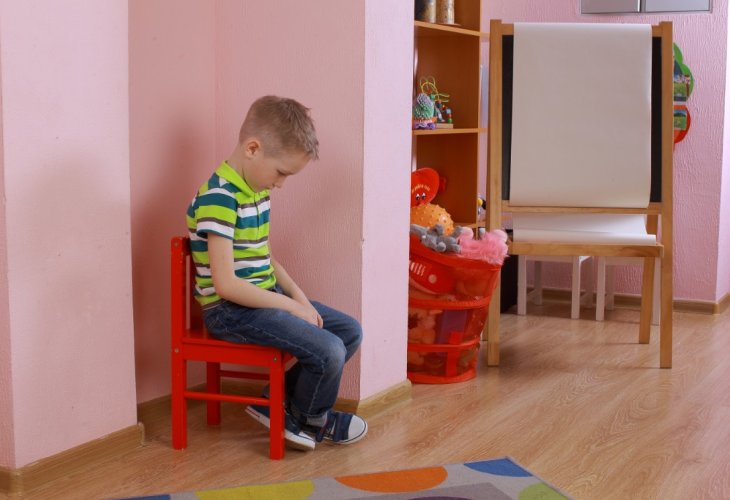Personality Development
Principles of Education: Raising Children Without Extremes
How Jewish Wisdom Teaches Parents to Avoid Harsh Punishment While Setting Healthy Boundaries
 (Photo: shutterstock)
(Photo: shutterstock)One of the major pitfalls of modern educational thinking is the extreme polarization around the question of discipline. On one end, some reject any form of punishment entirely. They never speak firmly or take a strong stance with their children, even when the child repeatedly engages in negative behavior. On the other extreme are those who claim, “Without hitting, a child won’t learn,” and they adopt physical punishment as a standard method of discipline.
What Judaism Teaches
The Torah teaches us that both of these extremes are mistaken. A parent who hits their child for every misstep not only loses the deterrent power of punishment over time, but also fails to educate. This approach only teaches the child to avoid certain behaviors when someone is watching. But when left alone, the child will likely do whatever they please- and sometimes even worse, like a tightly wound spring suddenly released. The more tension builds, the higher the reaction.
Worse still, this approach can deeply harm and even permanently damage a child’s soul.
On the other hand, the Talmud warns that excessive fear in the home leads to destructive outcomes. A parent who rules with harshness- even if intending to guide their family- will ultimately cause harm, not growth. This principle applies to how we treat both our children and our spouses.
Should We Never Punish?
Not quite. Jewish teachings and halachic sources also clarify that there are situations where consequences are necessary, particularly when a child persistently engages in harmful behavior.
The key is finding a balanced approach- the golden path- where discipline is not the default method, but is understood to be a last resort. Children should grow up knowing that their relationship with their parents is based on love and closeness, but also aware that consequences can exist if absolutely necessary.
This creates a healthy dynamic: children don’t suffer the emotional fallout of being punished routinely, yet they also learn to resist negative impulses more effectively when they understand that boundaries do exist.
A Story: The Queen and the Hall of Whips
The Sages offer a powerful analogy: A newly married queen is about to enter the palace for the first time. The king, who hasn’t yet built full trust in her, chooses to bring her in through a hall lined with whips and tools of punishment. Startled, the queen assumes these are for her. But the king quickly reassures her: “These are for rebellious servants, not for you. You are here to eat, drink, and rejoice with me.”
This story teaches us how punishment should be understood- not as a standard or threat within the relationship, but as a backdrop that helps uphold trust and commitment.
The queen’s default relationship with the king is one of love and joy, but the awareness of consequences reinforces her commitment. When she misinterprets the intent, the king is quick to clarify with kind, warm words.
From this we also learn how important it is to build a child’s positive self-image. Never label a child by their mistakes- don’t say “You’re a thief!” or “You’re a liar!” Instead, say something like: "An honest child like you, who is always careful, wouldn’t usually take something that isn’t theirs. That’s just not like you."
This approach anchors the child in their strengths while gently correcting their behavior.
When Punishment Is Unavoidable: Four Conditions
Even when there’s no choice but to discipline, Torah law teaches us to do so under strict conditions:
1. Discipline Must Come from Love
The Torah compares G-d’s discipline to that of a father toward his child- with love and care. A parent who hits out of anger rather than thoughtful love is acting out of emotion, not education.
The Vilna Gaon emphasized: "Never hit your child like an enemy, out of rage. Only correct him to help him improve his ways. If your anger is too strong, wait. Don’t hit him at all in that moment."
Anger introduces ego, revenge, and cruelty into the equation, and the child will sense it. Instead of feeling corrected, the child may conclude that their parent hates them. That belief is deeply damaging.
2. Only When the Child Knew It Was Wrong
You may only discipline a child who knew at the time that their action was wrong and did it anyway. If they didn’t realize, the child feels unfairly targeted and may develop a deep resentment. This builds over time, leading to rebellion and rejection of parental authority altogether.
3. Age Matters
The Talmud tells of a woman in Rabbi Yehuda HaNasi’s household who saw a man hitting his grown son. She declared him worthy of excommunication, explaining that he was causing his son to sin by striking back- thus violating the Torah command: "Do not place a stumbling block before the blind."
Rashi explains that when a child is too old, they may instinctively fight back or speak disrespectfully, and the father becomes responsible for leading them into sin. This principle applies even to children under bar mitzvah if there’s a chance they’ll respond negatively.
4. Gentle Means Only
Even if all the above conditions are met, the Talmud says: "If you must hit a child, only do so with a shoelace."
This phrase is symbolic and means that the “punishment” must be light, not harsh or hurtful but just enough to startle the child out of an ongoing pattern, not to cause pain or humiliation.
True education isn’t built on fear or anger but on trust, love, and clarity. The child should always feel secure in their relationship with their parents, and also understand the importance of boundaries and consequences, used sparingly and wisely.
This is the path of the Torah: No extremes- just wisdom, love, and balance.

